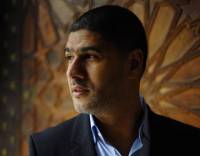Although no one had imagined the creation of an Islamic state in Iraq and the Levant by an initially small minority group nor imagined the restoration of the old institution of the Caliphate (abolished by Atatürk in 1924 ) Daech and the caliphate of Al-Baghdadi are not epiphenomena. What is happening nowadays is to be taken seriously, as much as the Khmer Rouge in Cambodia and the Islamic revolution of Khomeini in Iran. It is a sustained movement that the international military coalition that is taking place will fail to eradicate. They could kill Al-Baghdadi, but another caliph will arise because the ability to restore the caliphate is engrained in many spirits.
The success of Daech is the result of multiple events, circumstances, policies that can be traced back at least to the division of the Middle East by the Franco-British agreements in 1916 (Sykes-Picot agreements) at the time of the gradual collapse of the Ottoman Empire. But in the collective imagination of those who adhere to Daech, there is also the memory of the Crusades, centuries of clashes between the Muslim and Western worlds; the memory of colonial enterprises in Egypt since Napoleon, the trauma ensuing the creation of Israel in 1948 on a land considered as belonging to the Muslim, the war in Algeria and so on. Daech is fueled by a deeply rooted sense of humiliation of Arab people by the West.
It is also fueled by the conflict, related to the history of Islam between Shiites and Sunnis and has taken, in recent years, an unprecedented dimension (as it's the first time in history that both sides have significant financial and technological resources).
It is fostered, too, by replacing in the last decades, traditional Islam (which was tightly controlled by various structures, secular institutions) by wahhabi Islam or the Muslim Brotherhood. Islam coming from Saudi Arabia, thanks to the money generated from oil resources, to the practical centrality of pilgrimage to the holy places as well as to the Internet, has promoted a sacred obscurantist view of the world, of the relationship between men (and women!) and between peoples. More modern, less obscurantist but equally sectarian and totalitarian, the Muslim Brotherhood (both opponents and allies of Wahhabis) have ultimately served the same purpose: the submission to a total and totalitarian Islam.
The West denounces "terrorism", and Muslims – states as individuals - are doing the same. However, Daech could not have succeeded if there was not a deep commitment by a large part of the Muslim world (mainly in the Arab world) to what it represents. The dream of the restoration of the Caliphate continued to live in many minds since 1924, starting with those of the Muslim Brotherhood.
Governments of France, Belgium, and Morocco are completely bewildered by finding the enthusiasm that Daech arouses in a part of their youth. We're talking about 500 young people leaving from Belgium, a thousand leaving from France, hundreds of others leaving from Morocco to join the ranks of Daech's fighters. Among those who left from France, there is obviously a large number of "converts", including young people who have switched overnight from ham and butter sandwiches to jihad!
Many of them have accumulated failures and are resentful against the powers and institutions of their country. They feel that their lives are not respected and are useless. They then begin to desire to serve a large project of world upheaval. Failing to "save" their lives on this land, they choose to "save" others, and their lives for eternity (the belief in heaven and its virgins). The mechanisms behind joining Daech are not very different from those made by others when joining formerly Marxist revolutions, involvement in groups such as the Italian Red Brigades, the German Red Army Faction, or the guerrillas in Latin America from 1960 to 2000. Marxist-Leninist messianism is replaced by an Islamic messianism.
Facing the rise of barbaric behavior, many Muslims condemn out loud by saying that: "All of this is not Islam!" Or, as these days on social networks "Not in my name". It is certainly not their understanding of Islam, how they live it in the privacy of their heart and family. But it is nevertheless the obscurantist Islam that is being taught in recent decades in most venues of doctrine and culture of piety. Nowhere-almost- in these places are people encouraged to think, to implement critical thinking, to be discerning. They are instead instilled a "sacred history" a wonderland like genre and are being asked to embrace it with no regard for literary genres and deeper meanings, where no place is made to the understanding of the importance and function of founding myths. The historical dimension of Islam, the conditions of its emergence, which were fashioned from the outset are completely ignored, whereas other events and texts are made sacred and are in fact the result of historical contingencies where issues of power and selfish interests were paramount.
Thus, the only way to end the manipulation and fanaticism of the masses by undemocratic states and fundamentalist movements is to go through the acceptance of the critical approach towards the religious discourse and raising the awareness that we must bridge the gap in history.
Rachid BENZINE islamologist and member of the CCME

